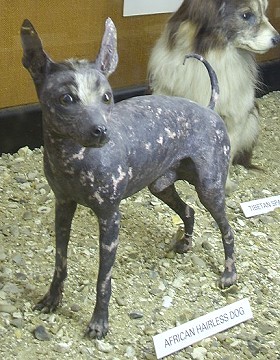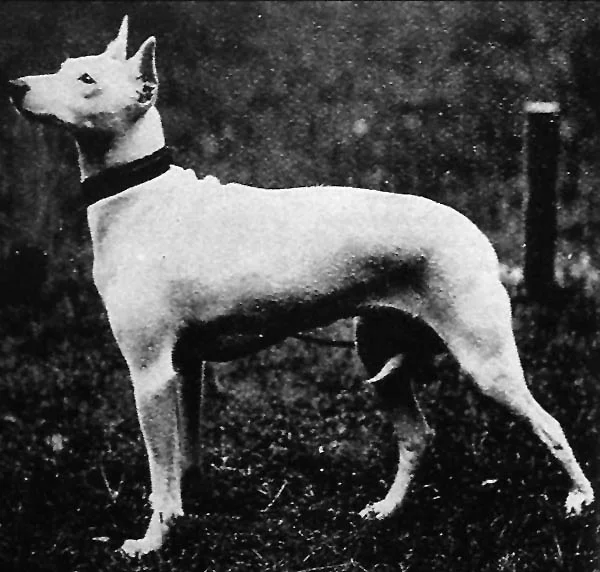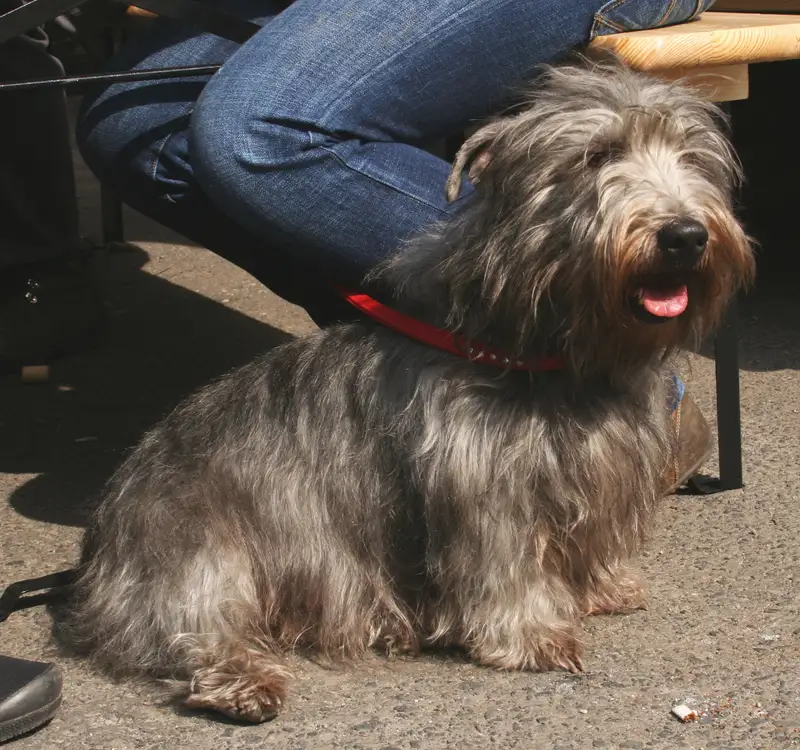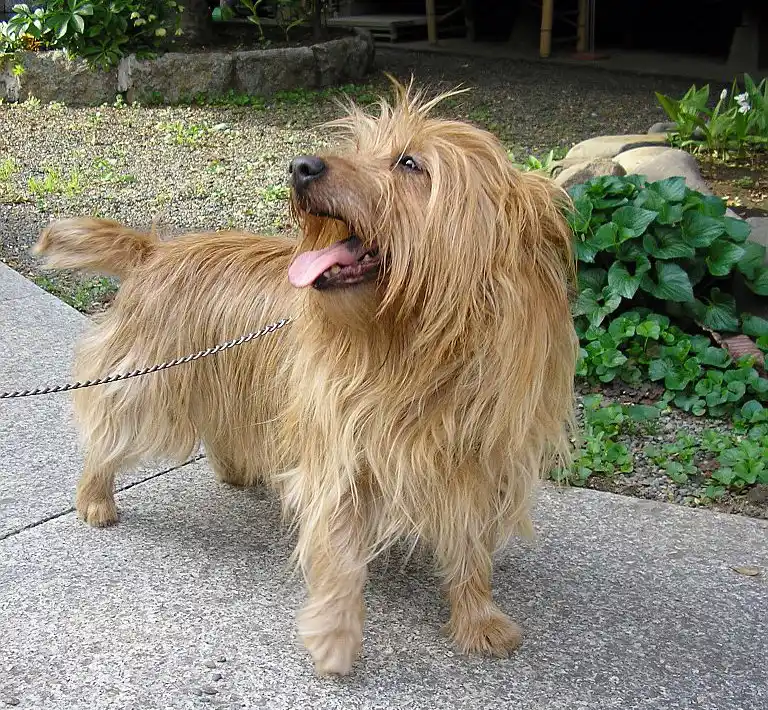Welsh Terrier
The Welsh Terrier is a spirited and affectionate breed known for its hunting background and playful nature. With a distinctive black and tan coat, this medium-sized dog thrives on regular exercise and mental challenges, making it an ideal companion for active families.
⚡At a glance
🏆Best traits
Key Facts
- Height
- 30-39 cm
- Weight
- 9.1-10 kg
- Life Span
- 12 - 14 years
- Group
- Terrier
- Origin
- Wales
- Shedding
- Very Low
- Exercise
- 60 min/day
- Best For
- Families
Overview
🐕Breed Overview
✨Key Traits
💡What Makes Welsh Terrier Special
Welsh Terriers are characterized by their strong hunting instincts and energetic personalities. They are known for their playful nature and love for interactive games, which help channel their energy positively.
Their independent thinking can sometimes lead to stubbornness, requiring owners to be patient and consistent in training. Despite their assertive nature, they are affectionate and loyal companions, often forming strong bonds with their families.
Their alertness and protective instincts make them excellent watchdogs, always ready to alert their owners of any unusual activity. Early socialization is crucial to ensure they develop into well-rounded adults, as they can be reserved with strangers and may exhibit territorial behaviors.
The Welsh Terrier is a charming and spirited breed with a rich history rooted in Wales. Known for its distinctive black and tan coat, this medium-sized dog is both sturdy and compact, making it a versatile companion for various lifestyles. Originally bred for hunting small game, the Welsh Terrier has retained its tenacity and assertiveness, making it a loyal protector of its family.
With a playful and energetic disposition, this breed thrives on regular exercise and mental stimulation. Welsh Terriers are known for their intelligence, but they can also be independent thinkers, requiring consistent training and socialization to ensure they develop into well-mannered companions. Their affectionate nature makes them great family pets, especially with older children, while their watchdog instincts ensure they remain alert to any potential threats.
Despite being classified as endangered, the Welsh Terrier continues to capture the hearts of dog lovers with its unique personality and historical significance. Whether participating in earthdog trials or enjoying a day at the park, the Welsh Terrier is a breed that brings joy and companionship to its owners.
🎉Fun Facts
They were once bred to hunt alongside otterhounds, showcasing their strong hunting instincts.
Welsh Terriers are known for their minimal shedding, making them suitable for allergy sufferers.
Welsh Terriers have a playful nature and enjoy engaging in various activities, including swimming and agility training.
Breed Characteristics
Family & Friends
Good Behavior
Get Up & Go
Household Harmony
Temperament & Personality
✨Key Traits
🐕Core Temperament
The Welsh Terrier has a spirited and confident temperament, displaying a mix of playfulness and independence. They are generally friendly and outgoing, enjoying the company of their family members.
However, they can be reserved with strangers and may exhibit territorial behaviors. Their assertive nature means they may challenge authority, making consistent training and socialization essential.
Despite their independent streak, they are affectionate and loyal, often forming strong bonds with their families. Welsh Terriers thrive in active environments where they can engage in play and exercise, making them excellent companions for families who enjoy outdoor activities.
💫Personality Profile
The Welsh Terrier is a spirited and lively breed, known for its affectionate nature and playful demeanor. They are generally friendly with people and can be good companions for children, although they may exhibit some rough play.
Their independent streak can make training a challenge, but with consistent reinforcement, they can learn commands and tricks. Welsh Terriers are alert and make excellent watchdogs, often barking to alert their owners of any perceived threats.
They thrive on social interaction and enjoy being part of family activities, making them well-suited for active households.
🔊Vocal Tendencies
Welsh Terriers are known for their vocal tendencies, often barking to communicate or alert their owners. They may bark when excited, during play, or when they perceive a threat.
While they are not excessive barkers, their alertness can lead to frequent vocalizations, especially if they are bored or not adequately exercised. Training can help manage their barking, but owners should be prepared for some level of vocalization as part of their personality.
Affection & Social Traits
Warm and balanced socially — here’s how it shows up day to day.
Energy & Activity
Moderate, steady energy — great for matching your routine.
Communication Style
Moderately talkative — a quick read on noise at home.
Care Requirements
🏃♂️Exercise Requirements
Daily Exercise
The Welsh Terrier is an energetic breed that requires regular exercise to maintain its physical and mental well-being. Ideally, they should engage in at least 60 minutes of exercise each day, which can be broken down into multiple sessions.
Activities such as brisk walks, playtime in a secure yard, and interactive games like fetch or tug-of-war are excellent for keeping them stimulated. Swimming is also a favored activity, as many Welsh Terriers enjoy water.
Puppies may require shorter, more frequent play sessions to accommodate their developing bodies, while senior dogs may benefit from gentler walks to avoid strain. Regular exercise helps prevent boredom, which can lead to destructive behaviors, and promotes a healthy weight and cardiovascular health.
Preferred Activities
🏠Living & Adaptability
Space Requirements
Welsh Terriers are adaptable and can thrive in various living environments, from apartments to houses with yards. However, they do require sufficient space to run and play.
A securely fenced yard is ideal, as they have a natural instinct to chase and explore. In smaller living spaces, owners should ensure that the dog receives ample outdoor time and mental stimulation through interactive toys and regular walks.
Without adequate space and exercise, Welsh Terriers may exhibit destructive behaviors due to boredom.
Climate Preference
🍲Feeding Guide
Schedule
Food Types
Portion Size
Special Nutritional Needs
Welsh Terriers do not have specific dietary restrictions, but it is essential to provide a balanced diet rich in protein and healthy fats to support their active lifestyle. Regular veterinary check-ups can help monitor their health and adjust dietary needs as they age.
✨Grooming Requirements
Grooming Overview
The Welsh Terrier has a wiry, dense coat that requires regular grooming to maintain its texture and appearance. Owners should brush the coat two to three times a week to prevent matting and remove loose hairs.
Hand stripping is recommended to maintain the coat's quality, especially for show dogs, while pet owners may opt for clipping every eight weeks. Regular grooming helps keep the coat healthy and prevents fading or thinning.
Ears should be checked regularly for cleanliness, and nails should be trimmed as needed to prevent overgrowth.
Care Schedule
Brush 2-3 times a week; hand strip every 3 months; bathe as needed.
Health Profile
⚕️Health Care
Regular veterinary care is crucial for maintaining the Welsh Terrier's health and longevity. Routine check-ups, vaccinations, and preventive treatments can help catch potential health issues early. Maintaining a healthy diet, regular exercise, and dental care also contribute to their overall well-being throughout their life stages.
Health Issues Overview
⏳Average Lifespan
Genetic Factors
Genetics play a significant role in the Welsh Terrier's lifespan, with hereditary health issues such as primary lens luxation and glaucoma being of concern. Responsible breeding practices that prioritize genetic diversity can help reduce the prevalence of these conditions. Potential owners should seek reputable breeders who conduct health screenings and provide health guarantees for their puppies.
Living Conditions
The Welsh Terrier thrives in environments that provide ample opportunities for exercise and social interaction. A secure yard or access to parks is ideal, as they enjoy exploring and playing.
Living in a stimulating environment with regular activities can enhance their longevity and overall happiness. Additionally, a stable home life with consistent routines and socialization contributes positively to their lifespan.
🏥Common Health Issues
Primary Lens Luxation
Warning Signs
🔬Diagnosis
Veterinarians typically diagnose this condition through a comprehensive eye examination.
💊Treatment
Surgical intervention may be necessary to correct the issue.
📝Management Tips
Regular veterinary check-ups can help monitor eye health. If diagnosed, treatment options may include medication or surgery to manage symptoms.
Glaucoma
Warning Signs
🔬Diagnosis
Diagnosis is made through eye pressure tests and visual examinations.
💊Treatment
Medications or surgical options may be required depending on severity.
📝Management Tips
Regular eye exams can help detect early signs. Treatment may include medications to reduce eye pressure.
🛡️Preventive Care
🔬Ophthalmic Examination
Eye examinations to assess overall eye health and detect conditions like lens luxation or glaucoma.
📅 Annually or as recommended by a veterinarian.
🔬General Health Check-up
Routine health screenings to monitor for common breed-specific health issues.
📅 Every 1-2 years, or as recommended based on age and health status.
Training
🧠Intelligence & Trainability
💪Work Drive
Welsh Terriers have a strong work drive, stemming from their history as hunting dogs. They thrive when given tasks or challenges to complete, whether through agility training, earthdog trials, or interactive play.
Engaging their minds is just as important as physical exercise; puzzle toys and scent games can provide mental stimulation. Without adequate mental and physical challenges, Welsh Terriers may resort to destructive behaviors or excessive barking.
⚠️Training Considerations
Welsh Terriers can be independent thinkers, which may lead to challenges in training. They often test boundaries and may exhibit stubbornness if not properly motivated.
To overcome these challenges, owners should employ consistent, positive reinforcement training methods. Engaging training sessions that incorporate play and rewards can help maintain the dog's interest and encourage obedience.
Socialization is also crucial; exposing Welsh Terriers to various environments, people, and other animals from a young age can help mitigate any aggressive tendencies or shyness. Regular training sessions should be reinforced to ensure the dog remains responsive and well-behaved.
📝Training Tips
Training a Welsh Terrier requires patience and consistency. Start with basic obedience commands and gradually introduce more complex tasks. Use positive reinforcement techniques, such as treats and praise, to encourage desired behaviors.
Keep training sessions short and engaging to hold the dog's attention. Incorporating play into training can help make learning enjoyable. Socialization is essential; introduce your Welsh Terrier to different people, dogs, and environments early on to foster a well-rounded temperament.
Consider enrolling in obedience classes to provide structure and guidance for both the dog and owner.
History & Heritage
📜Origin Story
The Welsh Terrier's origins can be traced back to the rugged landscapes of Wales, where it was developed as a versatile hunting dog. Farmers relied on these terriers to control vermin and assist in hunting larger game.
The breed's tenacity and ability to work independently made it a valuable asset on farms. By the late 1700s, distinct strains of Welsh Terriers were recognized, particularly the Ynysfor strain, which was known for its hunting capabilities alongside otterhounds.
The breed's journey to recognition in dog shows began in the late 19th century, culminating in its official classification by the English Kennel Club. Despite facing challenges in maintaining its population, the Welsh Terrier remains a cherished breed, embodying the spirit of Welsh culture.
⏳Development History
The Welsh Terrier likely descended from the Old English Black and Tan Terrier, with its roots tracing back to the 1700s in Wales. Initially bred for hunting, the breed was recognized by the English Kennel Club in 1886.
Over the years, selective breeding aimed to enhance its appearance for dog shows, leading to a more refined look while retaining its original hunting instincts. Despite its late entry into the show ring, the Welsh Terrier has maintained its working abilities and is still valued for its hunting prowess, although it is now primarily bred for companionship and show.
🛡️Purpose & Historical Role
Originally bred for hunting small to medium-sized prey, including otters, foxes, and badgers, the Welsh Terrier was an essential working dog on farms. Its role has evolved over time, and today, it is primarily kept as a companion and show dog.
The breed is still appreciated for its hunting instincts and participates in earthdog trials, showcasing its natural abilities. The Welsh Terrier's history as a hunting dog has contributed to its strong character and assertiveness, making it a loyal and protective companion.
🏺Cultural Significance
The Welsh Terrier is one of the oldest existing dog breeds in the UK, with a rich history tied to hunting and companionship. Originally bred for hunting small game such as foxes, badgers, and rodents, the breed has played a significant role in Welsh culture and rural life.
Despite its decline in popularity, the Welsh Terrier remains a symbol of Welsh heritage and is recognized for its tenacity and spirited nature. The breed's presence in popular culture, such as its portrayal in animated films, has helped maintain interest in its unique characteristics and history.
Conservation Status
Population is considered vulnerable or declining in many regions.
Less widespread; more likely to be region-specific or niche.
This breed is endangered with low population numbers globally.
?Frequently Asked Questions
Is the Welsh Terrier good for apartment living?
The Welsh Terrier can be moderate when it comes to apartment living. With adequate daily exercise and mental stimulation, apartment life can work, but they would benefit from more space. Regular walks and interactive play sessions are important for their well-being.
How much does a Welsh Terrier shed?
The Welsh Terrier is a very low-shedding breed, making them an excellent choice for people who prefer minimal pet hair around the home. Regular grooming is still recommended to keep their coat healthy, but you won't find much fur on your furniture.
Are Welsh Terriers easy to train?
The Welsh Terrier can be moderate when it comes to training. They can learn commands and routines with consistent effort, though they may sometimes show a stubborn streak. Patience, positive reinforcement, and regular practice sessions will yield the best results.
How long do Welsh Terriers live?
The average lifespan of a Welsh Terrier is 12 - 14 years. Lifespan can be influenced by genetics, diet, exercise, and overall health care. Regular veterinary check-ups and a healthy lifestyle can help your Welsh Terrier live a long and happy life.
Is the Welsh Terrier good with kids?
Yes, the Welsh Terrier generally does well with children. They are patient and affectionate, making them a solid family dog. As with any breed, supervision during interactions with young children is always recommended.
How much exercise does a Welsh Terrier need?
The Welsh Terrier requires approximately 60 minutes of daily exercise. A combination of walks, play sessions, and mental stimulation activities will help keep them fit and happy. This is a moderate exercise requirement that fits well into most active lifestyles.
Is the Welsh Terrier good with other pets?
The Welsh Terrier may struggle with other pets, particularly smaller animals. Their prey drive or territorial nature can make multi-pet households challenging. Careful introductions, training, and supervision are essential.









